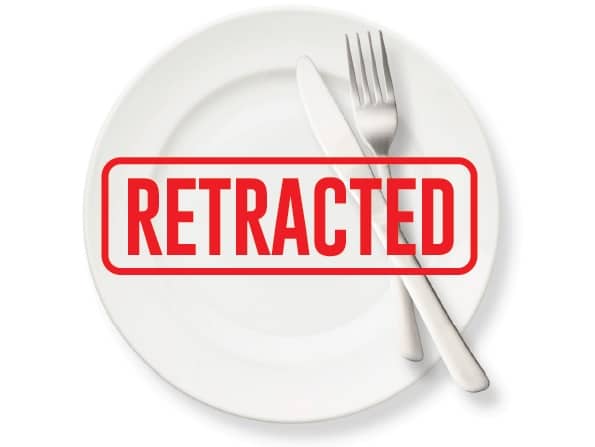
Some of the most profound and useful study findings on the psychology and marketing of food and eating published over the past two decades may be invalid. The famed, and now shunned, Cornell researcher Brian Wansink and his Food and Brand Lab published hundreds of studies, many of which have not stood up to scientific scrutiny.
To date, about 2 dozen of Wansink’s studies have been flagged or retracted. More are in line for a similar fate, as the findings of many are in question. For the most up-to-date list of questioned studies, check out the Retraction Database at retractiondatabase.org.
Health and fitness professionals should hesitate to tout a scientific basis for supporting these famous—and now suspect—findings:
- People will consume endless portions of soup as long as the bowl is refilled without their knowledge (the “bottomless bowls” experiment).
- People will eat stale, poor-tasting food if it is presented in large quantities (the “bad popcorn” study).
- Kids will eat more fruits and vegetables if they are given whacky names like “X-ray vision carrots” and “silly dilly green beans.”
- Using smaller plates leads people to eat less.
- Keeping junk foods out of sight causes us to eat less of them.
- People will eat almost all of the food that they serve themselves.
- The nutritional gatekeeper at home influences nearly 75% of the food eaten by the rest of the family.
- Half of the snack foods bought in bulk are eaten within a week of purchase.
- Men eat more in the company of women.
- Trayless cafeterias lead diners to choose less salad and more dessert.
- Nutrition report cards may improve school lunch selection.
- Hungry grocery shoppers buy more calories, not more food.
- To that long list, add
- 60 strategies promoted by the Smarter Lunchroom movement, and
- other findings from Wansink’s hundreds of studies.
Of course, some of his intuitive findings could turn out to be “true,”
even if the scientific data he used to support them is unreliable.
Natalie Digate Muth, MD, MPH, RD
"Natalie Digate Muth, MD, MPH, RDN, FAAP, is a board-certified pediatrician and obesity medicine physician, registered dietitian and health coach. She practices general pediatrics with a focus on healthy family routines, nutrition, physical activity and behavior change in North County, San Diego. She also serves as the senior advisor for healthcare solutions at the American Council on Exercise. Natalie is the author of five books and is committed to helping every child and family thrive. She is a strong advocate for systems and communities that support prevention and wellness across the lifespan, beginning at 9 months of age."





